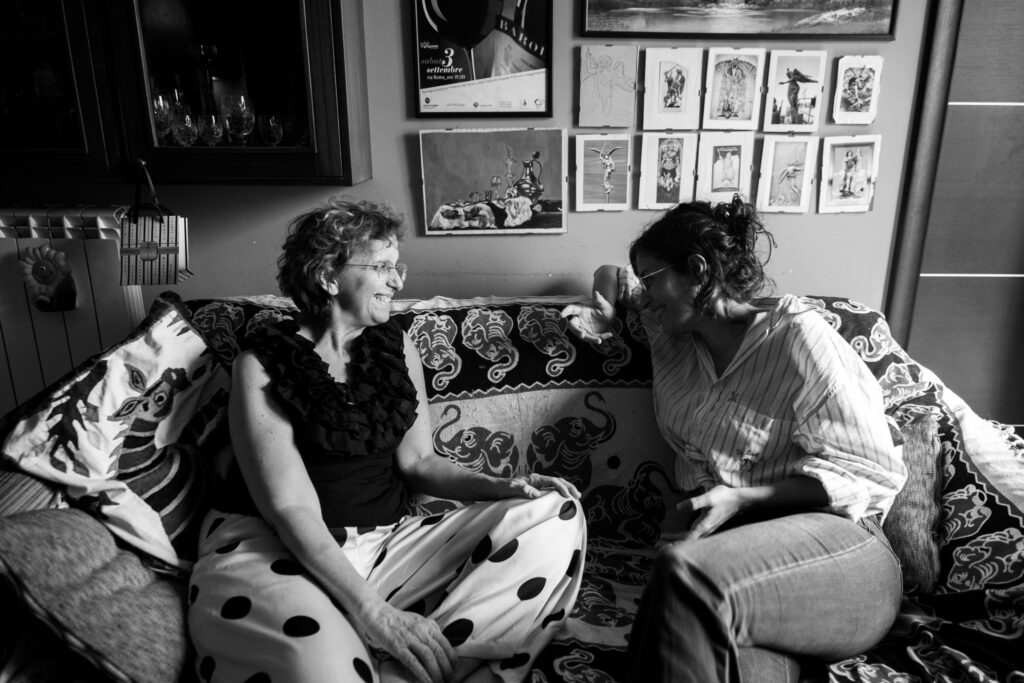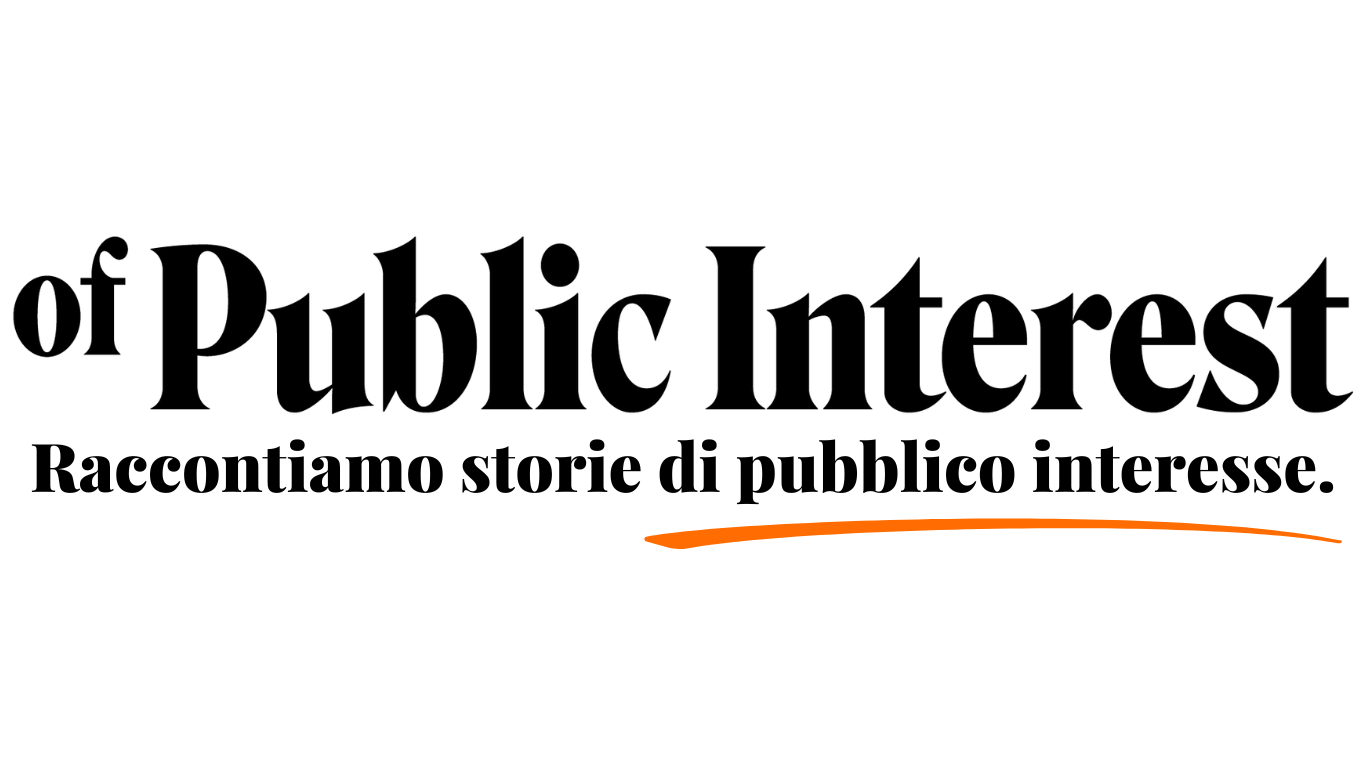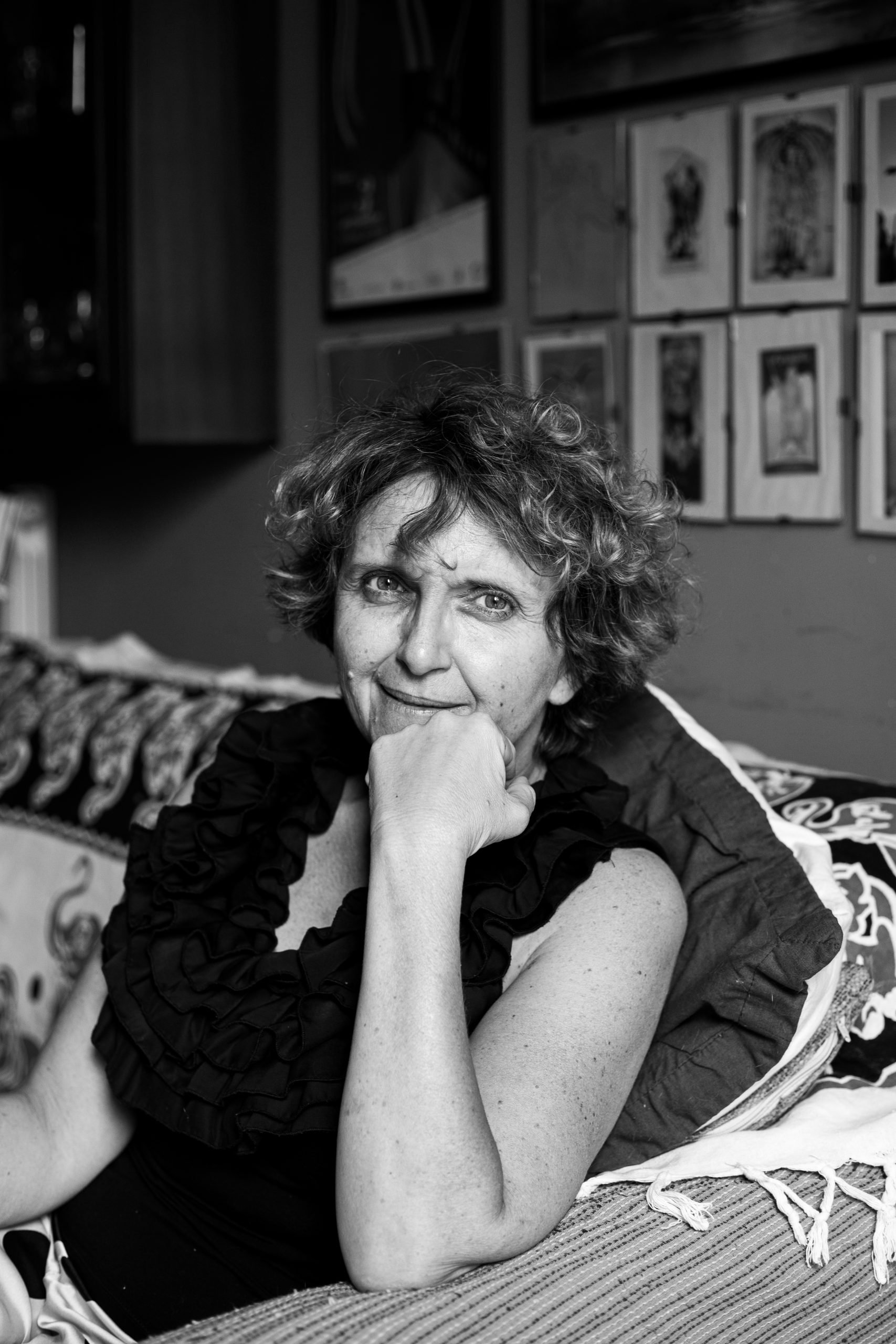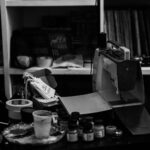Lea I want you telling the truth. You are so young, I know your view, it’s so easy to make simple action an heroic one. Disability is wretched, don’t forget it”
“Ok, Annalisa I will tell your truth”
Annalisa’s life is colourful. It seems to me a field of flower where you lie down after a exhausting battle. Her coat is colorful , it’s bright green. Her own home has walls of different colours. It’s a cozy and decisive home: you can be anyone, you will be welcomed. It’s the most alive home I’ve ever seen, overflowing of books, paintings and quotes on the walls. So I start thinking about about adolescence, that period in which is common to find yourself in a book, in a song so that you need to keep and write down the parts that are most exciting for you. I wonder if that inner turmoil it just a life’s period or if some person keep the ability of questioning who they are longer.
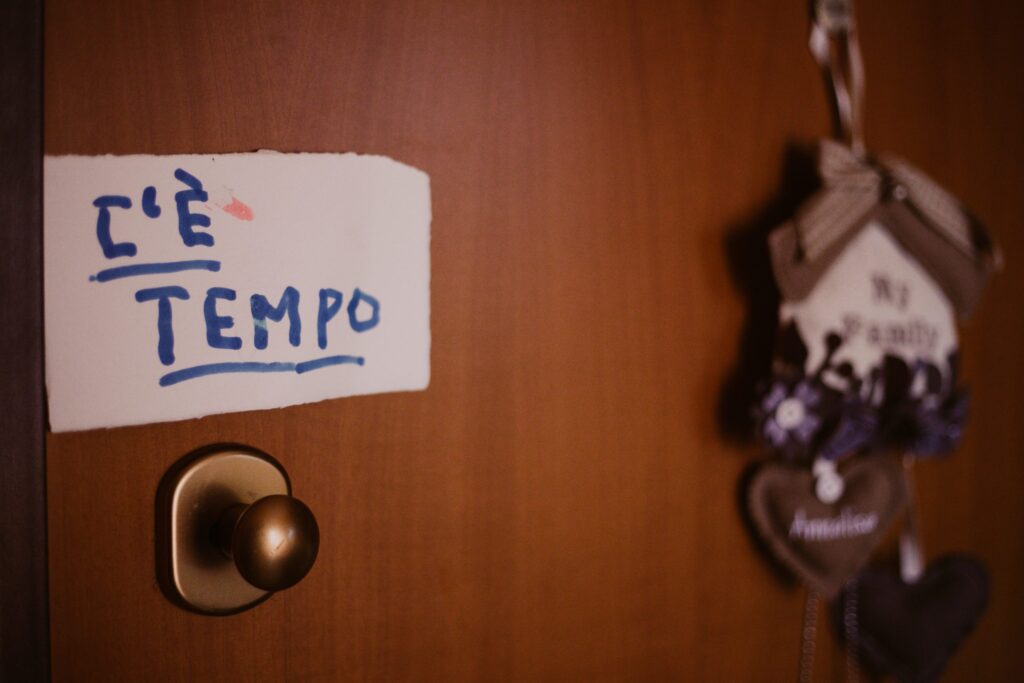
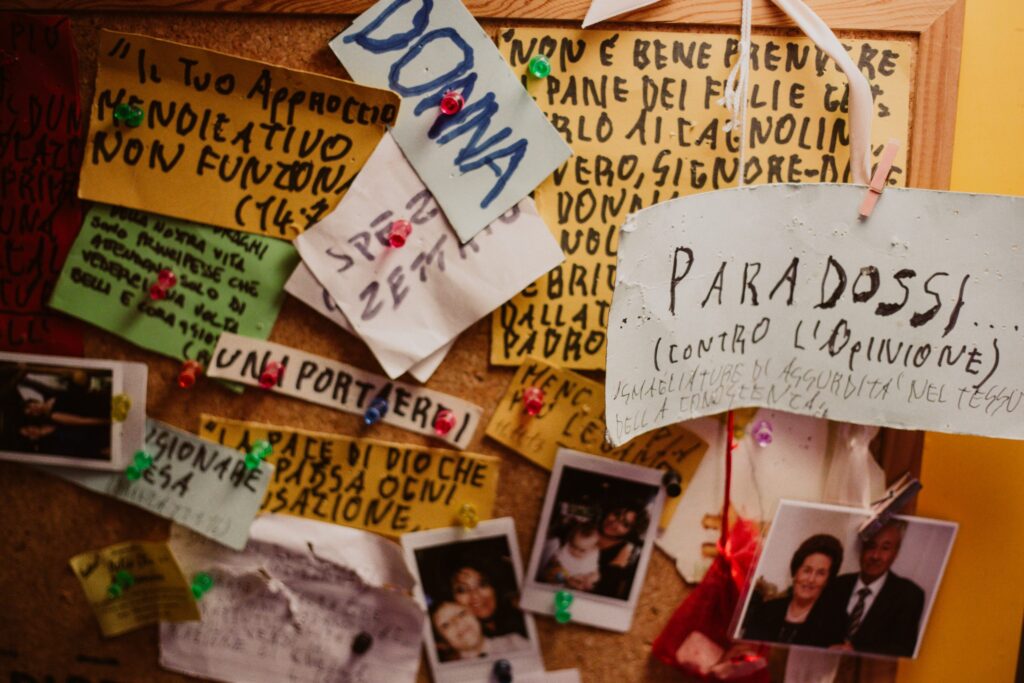
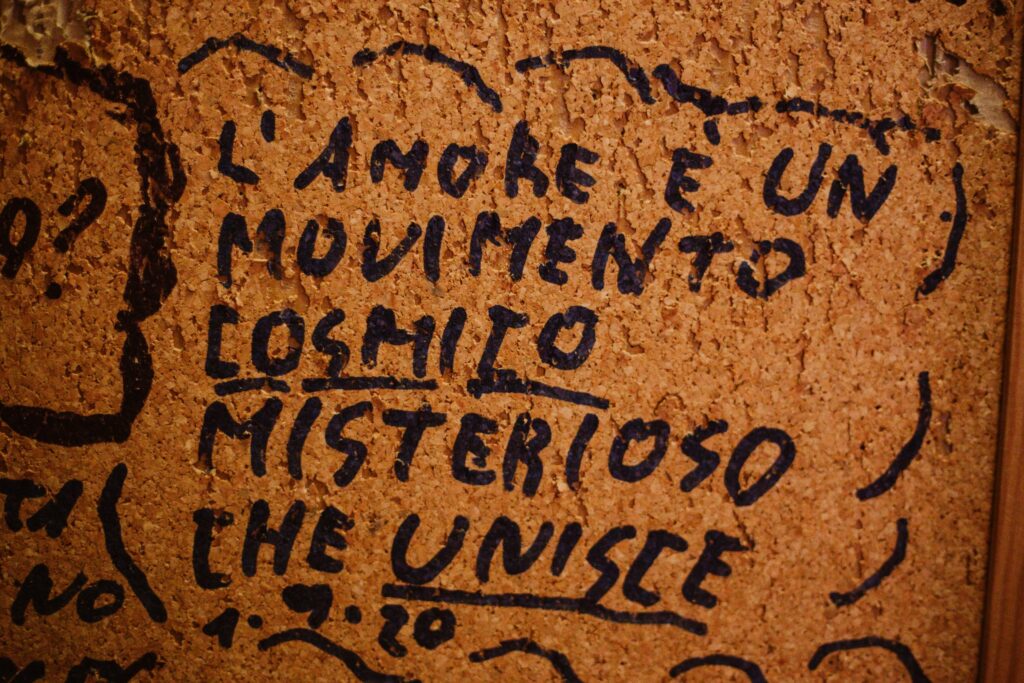
Annalisa walks slowly, a little fatigued. Being born with an injury to the cerebellum like her means difficulty in moving and articulating the limbs. She can do almost anything with her hands, but they often tremble, they move involuntarily. She does not have total control. If you are sitting at the table with her, how much these difficulties can capture your attention depends on you. On your history, according to Annalisa. On the emotional education that you got at school and in your family, according to me. Annalisa discovered her imagine when she was thirteen years old, the first video recorder arrived on the market and she asked her cousin to do a video. She wanted to see herself walking and hearing her voice. “Disability is wretched. ” she told me again. It makes you feeling bad, jealous. You have always the same question in your mind: “Why to me?” So you try to be normal, at all costs. She has been trying it for years, pretending to not refuse her body. Disability could not even be mentioned. When she made love for the first time, she felt safe. It took her so much effort to accept the idea that she could be desired.
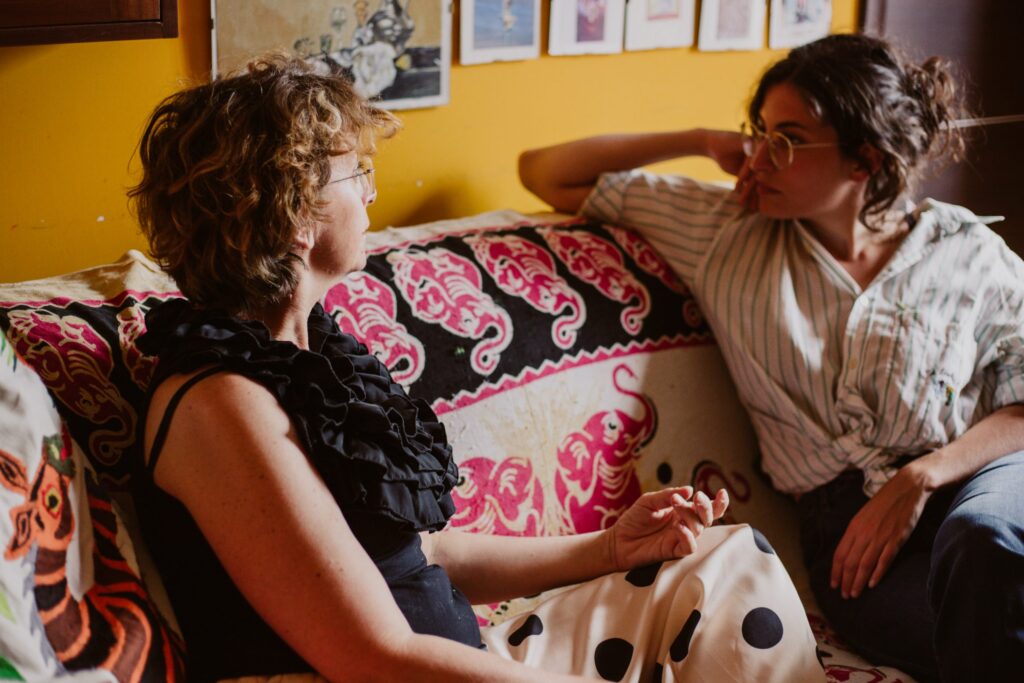
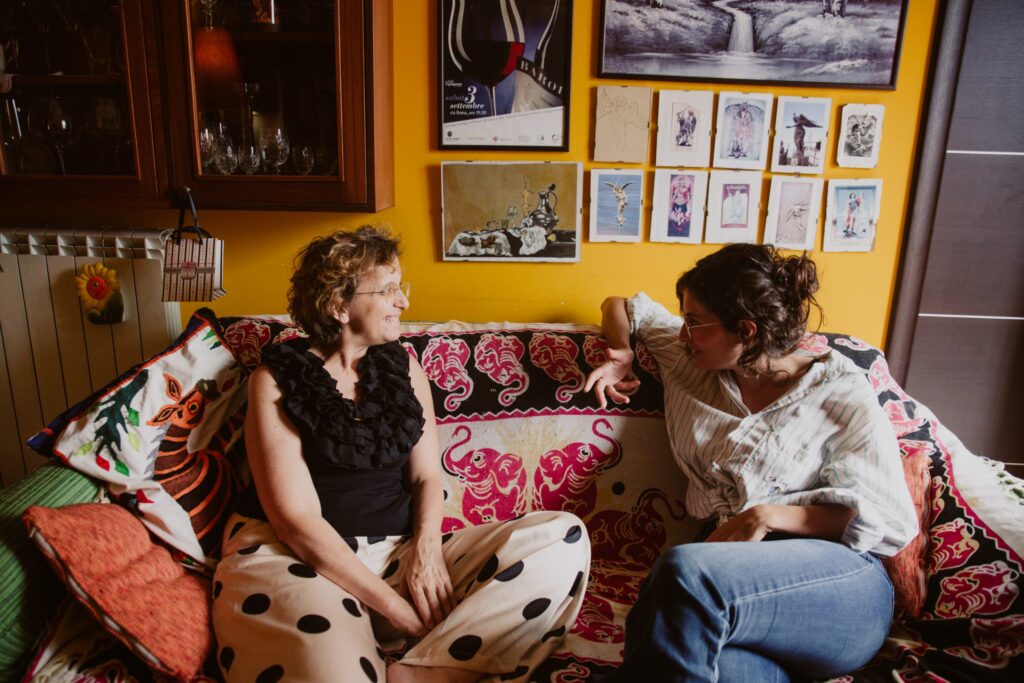
Easy to get, considering how she has been raised, with the idea that disability and femininity were incompatible, in a context where a woman with disability has not sexuality since sex needs beauty and disability doesn’t correspond to this stereotype . If you grow up with these ideas fixed in your mind, how people look at you can be a painful experience. Eyes can transmit discomfort and pietism in the fraction of a second. Annalisa spent full hours of therapy to survive that pain. A pain even powerful when you are fifteen years old and have no proper tools to defend yourself.
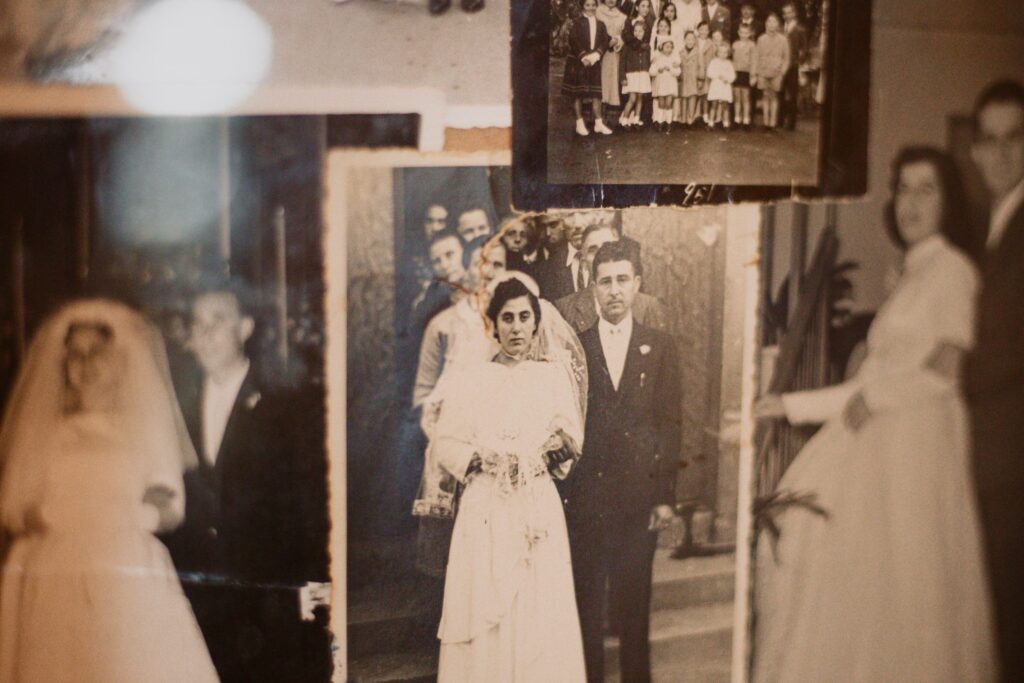
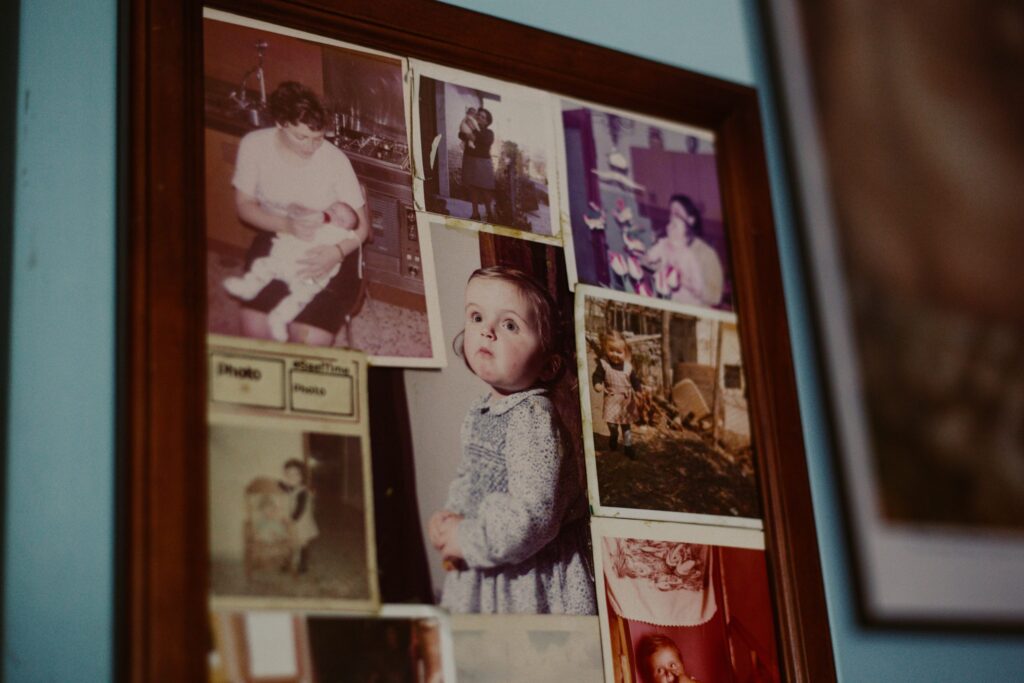
At the same time, some eyes can save you. Annalisa received so many beautiful and warm looks, she has been held in so many arms, caressed by so many hands.She has been encouraged by so many friends that didn’t help her anytime that she fell, believing that she would have got up by herself.
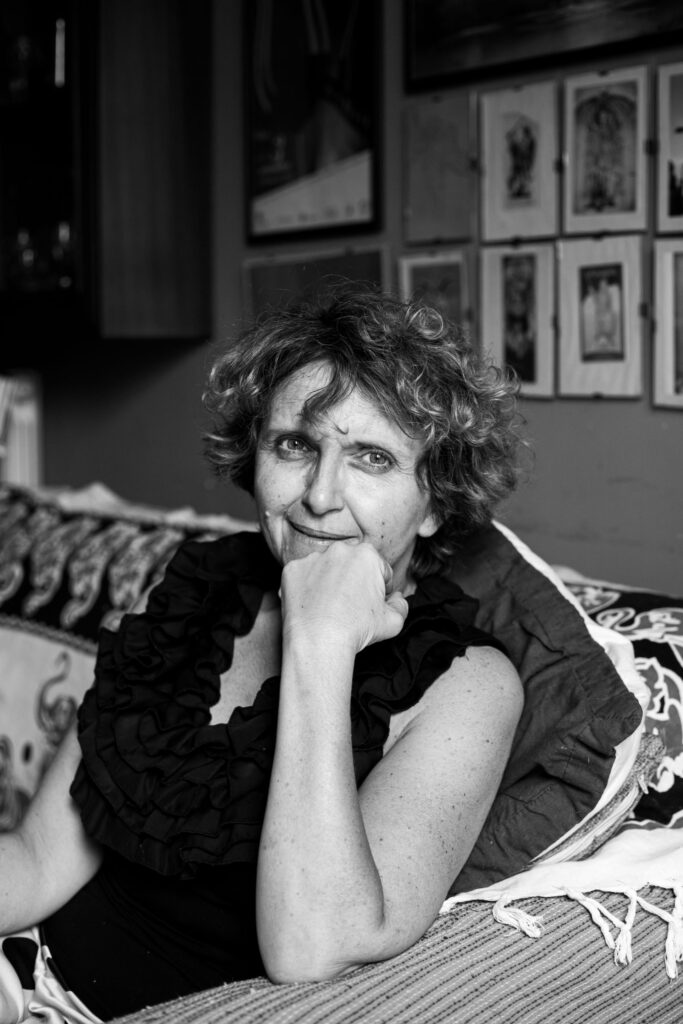
She told me that some days ago she was looking at herself in a mirror: “Finally, I’m not so wrong” , she commented with some fun. She’s a headstrong woman. That’s it. Some months ago I invited her to my place for an interview. She did four flights of stairs without asking for some help. She didn’t waver. She did it, step by step. I can translate the same dynamic to all her life. I can see her fatigues and her achievements. She lives with two cats, Audry and Ingrid. Ingrid is deaf and likely she has an injury to the spine. “But she lives as she can and she doesn’t give a fuck”, Annalisa commented.
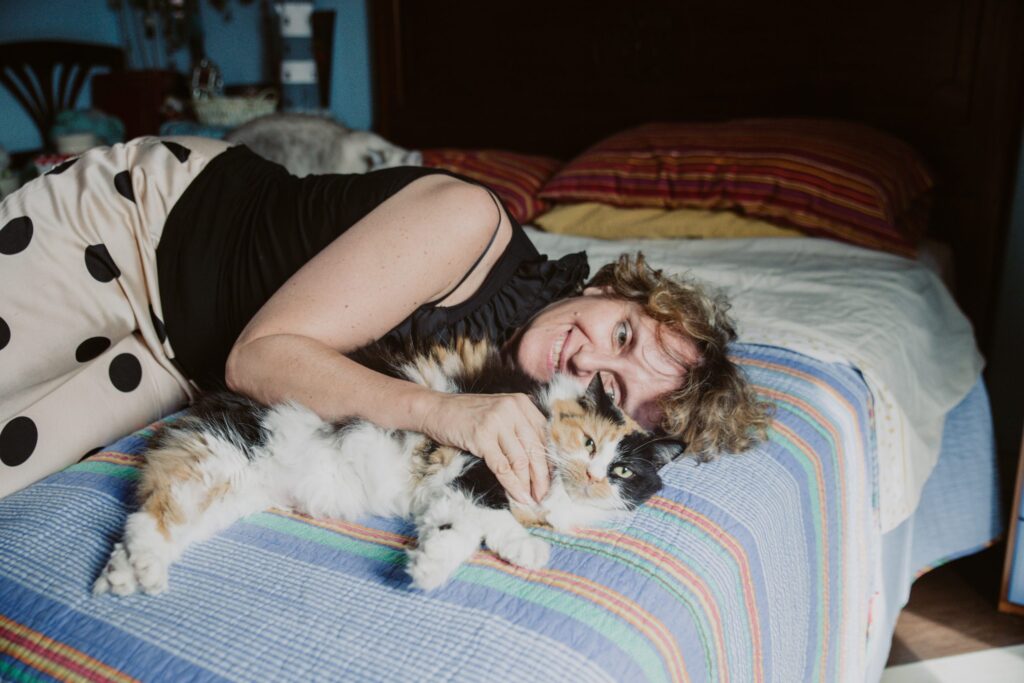
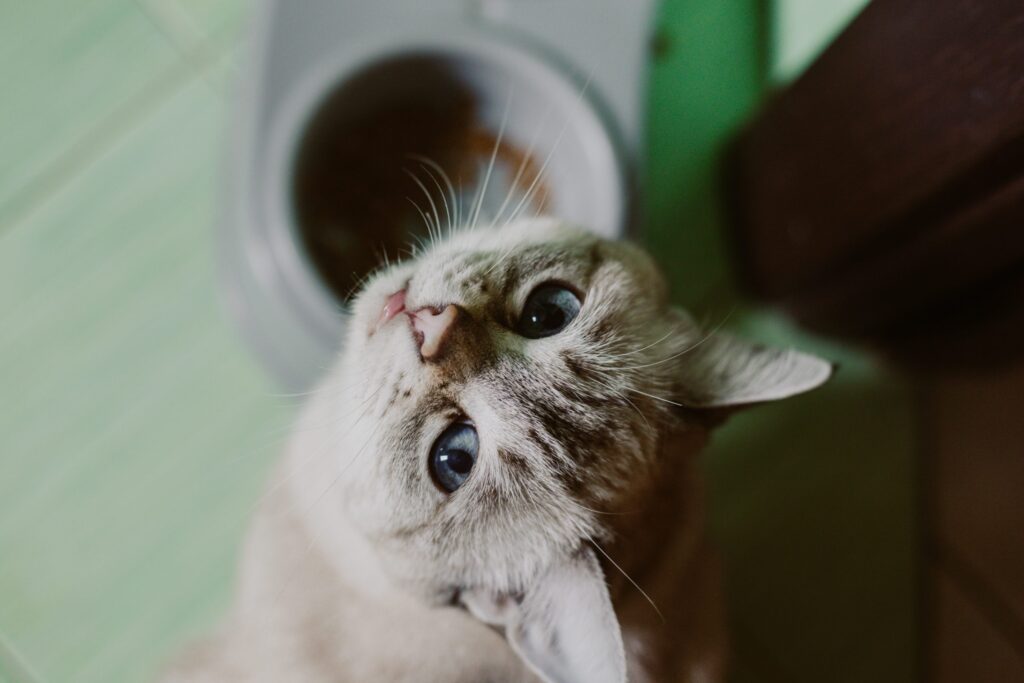
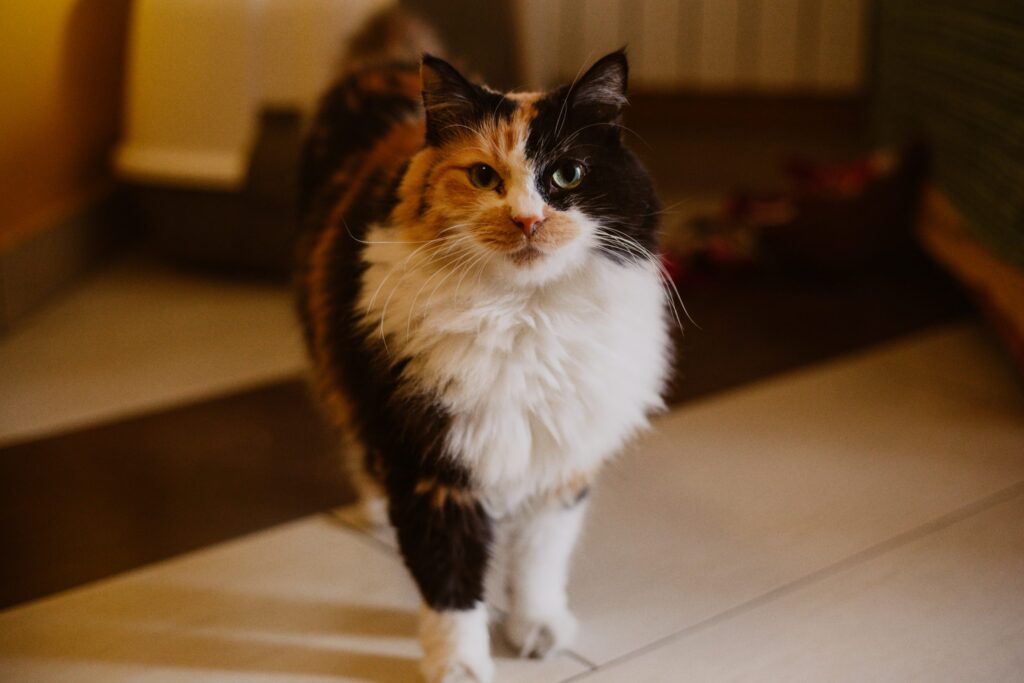
Maybe that’s what she also learned to do: being herself. She learned how to be a good lawyer and how to be a seductive woman. Her latest achievement is as a writer. Covid-19 took away the life she painfully built: friends, lunches, walkings, spiritual meetings and men. She fell into a deep loneliness that pushed her to reflect and write. She started on Facebook. She did it a bit for fun, a bit to get rid of the demons inside her mind. All the posts she wrote became a book “Diario di una zitella in quarantena”, or “The Diary of a Spinster in Quarantine” . She is literally naked in those pages, she tells about herself, her deep intimacy.
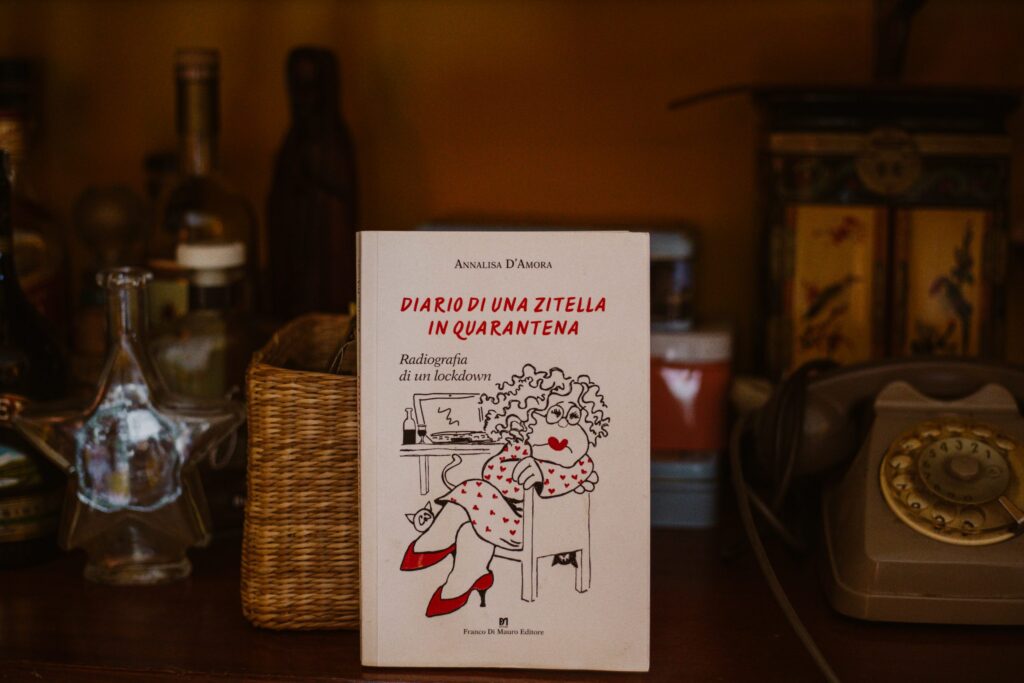
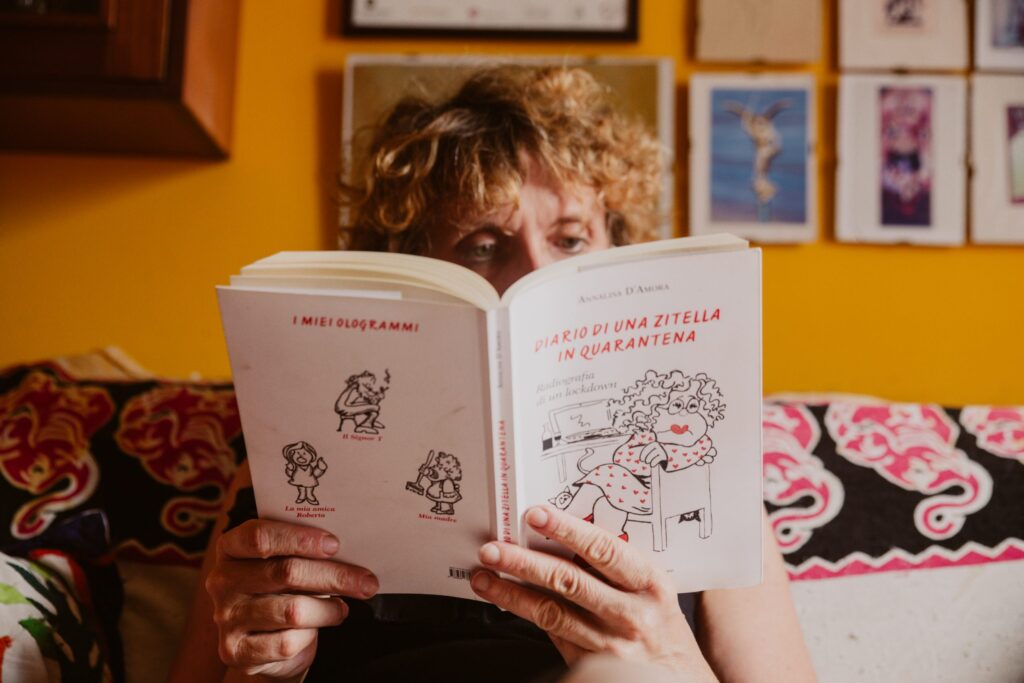
I ask her why, what’s the reason in showing so much of yourself. “Every word I used is just a point of a line, an infinite walking that some pages could never reveal” she explained to me. Her research is continuous. It started long before the diary and won’t step with it. The Diary represents just an exchange with other human beings through a dialogue she makes with herself. It’s a collection of dynamic texts that can make you laugh or cry. It depends on you. Annalisa reads and rereads them and every time discovers something new about herself. Her hope is that the diary will go far, maybe to someone that needs it. She strongly believes that what matters in life are meetings and synergies and that books can save your life and your loneliness. She has been feeling alone for a long time, living with the constant fear of being isolated, ghettoized. The pandemic transported her to an upside-down world, where everybody is fragile and in exile, with the constant fear of getting sick. Maybe if we try to remember that we are all potentially sick, barriers will be down and we all will look more similar to each other. She describes it properly in the book and she tells me: “sooner or later, we will all piss under”. Over the years she understood that disability is just a condition, not an irreversible condemnation. It gives you the opportunity to ask yourself “Who are you? Your “wrong” body?”
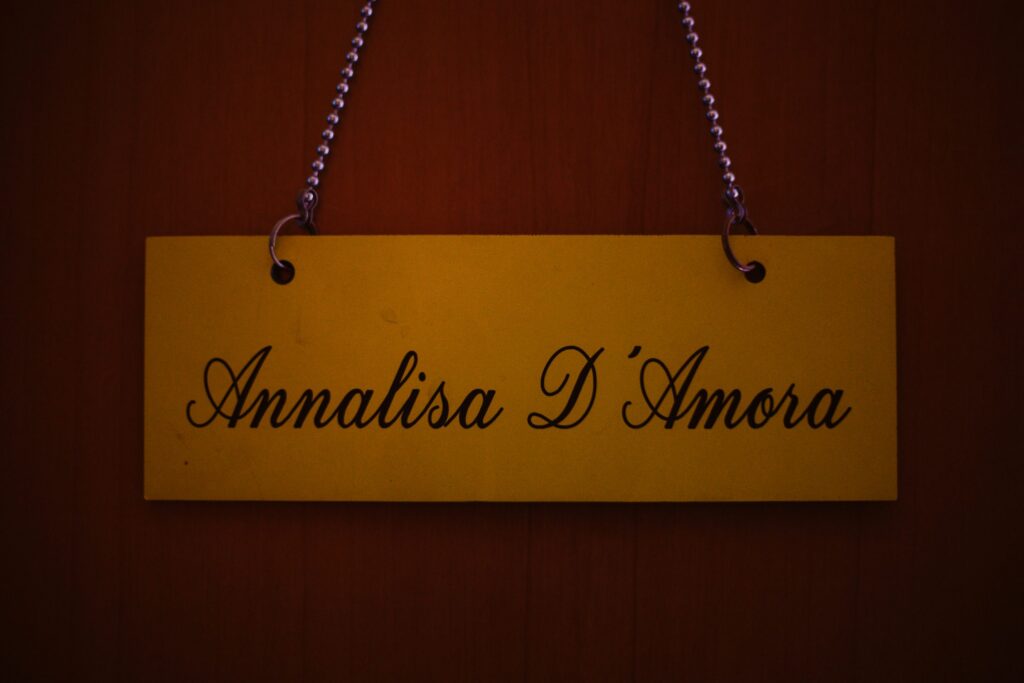
The answers she found had a price, measured in terms of tears and pain, until she finally got free and reborn. She started living a life that looks more like the world she has inside. While we chat, I still keep on looking at her with admiration. She realizes it. As I said, she is a headstrong, stubborn woman. She wants to take this idea out of my mind.
“Lea, my fight is still on, my meannesses do not disappear. Disability remains horrible. No one wants to be disable, maybe the only chance is the way we decide to deal with it. It can generate beauty and fruitfulness in the world”
“Annalisa, don’t you think that this is related to everyone? Healthy, sick, disable people. We always have a choice. Don’t you think that is the choice that we made in the most difficult conditions that determine who we are?
